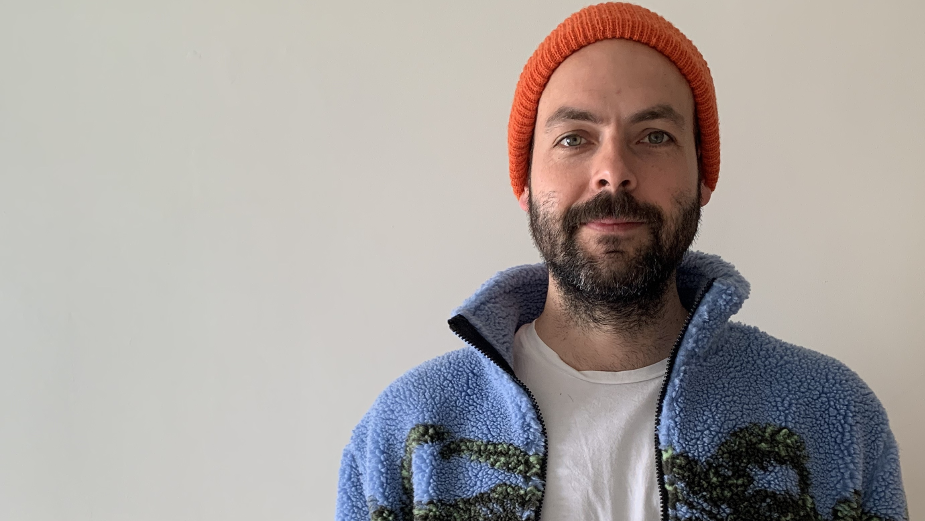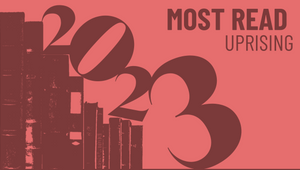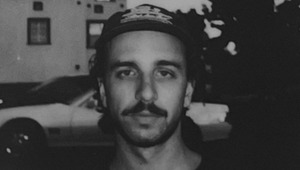
Future of Production: Droga5’s Chris Watling on Why Good Craft Loads the Dice in your Favour

Pulse Films predicts that 2021 will be the year that defines the future of production, a thought that's the driving force behind this exclusive new interview series on Little Black Book. Covering four key themes, the series will investigate how the pandemic has affected production and the shape of things to come.
Next up in the series is Chris Watling, head of production at Droga5 London. Chris leads the agency’s output across all disciplines, from film to photography, events to product design. He is convinced that good craft is a must for any piece of communication, not just a nice-to-have added extra and takes pride in finding and maximising the best possible talent in an environment of collaboration, transparency, respect and trust.
LBB’s Alex Reeves spoke to Chris about why the pandemic has validated much of what he already believed about good production, how ensuring diversity requires new levels of scrutiny, and why many of us could be underestimating the power of blockchain technology in the future of creativity.
LBB> What lasting impact has the experience of the pandemic had on how you and Droga5 thinks about and approaches production?
Chris> Confusingly, it’s changed both everything and nothing.
I’ll explain.
From the outset of building our production department five years ago, we wanted to design a process that would give us the capability to deliver on literally any idea, no matter what discipline it lived in, or what shape it took.
The key to that was having production enmeshed with strategy, creative and account management right from the off, rather than stuck at the tail end of a baton-pass through the agency.
How you might make something and who you might make it with can reveal some completely fresh and unexpected creative avenues, and so giving space for that to happen allows time to partner with the right specialists early, give them the opportunity to help shape the work into its best possible form, and help design a process to make it possible.
So whilst a pandemic is very far from the stress-test any of us ever wanted or expected, it has strangely validated this approach. Obviously the considerations have been a moving target, the game has changed from checkers to chess, and we are working in ways that would have been almost inconceivable 14 months ago - but the model of involving production early to help shape the approach and get to the right creative solution for the challenge at hand hasn’t changed at all.
LBB> What limitations do you now have to work with on a regular basis? What do you think will be temporary and which may stay with us for the foreseeable?
Chris> Like everyone else, we have been boxing with one arm tied behind our back for the last year, and a huge amount more energy has to be invested just to make something, let alone make something brilliant.
Freedom of movement has obviously been the big limitation, as it’s impacted on so many aspects of the job - whether that’s getting people to shoots, swapping cast members at short notice, getting everyone into a suite together to crack an edit, or innumerable other tasks which have become disproportionately challenging in the last year - and I think we are all hopeful that this will get progressively easier as time goes on.
Long-term, however, I suspect there will be a lot of discussion around the sweet spot between how things can be done and how things should be done.
The last year has shown that it is technically possible to do most things remotely - and it’s staggering what has been achieved. However, remote working isn’t always the natural habitat for brilliant work to thrive in - it can be time-consuming, transactional, soulless, and doesn’t easily allow for the unexpected creative electricity amongst the team that is so often the secret ingredient to turn good work into great work. So I think it will be important to be strategic in how you maximise the right bits for face-to-face interaction, and the right bits for working remotely.
LBB> How has the pandemic affected the demand for different production skills from production companies and directing talent?
Chris> Not that it needed one, but the pandemic has been the ultimate showcase of our industry’s grit, resourcefulness and sheer will to overcome. It’s been pretty staggering.
The reason production has been so quick to adapt to these previously unimaginable challenges is that creative problem-solving is our DNA; it’s just that the idea of what constitutes a ‘problem’ has been completely recalibrated.
It has really emphasised the importance of staying open-minded around how things can be achieved - in world devoid of certainty, you can’t be wedded to any single way of doing things, you need to be prepared to draw your own map, and it’s all about how you can turn the limitations from a headwind into a tailwind.
LBB> Do you think the quality of the craft is important for cut through in 2021 and beyond?
Chris> Not every idea that is successful is well-crafted. Similarly, not every idea that is well-crafted is successful.
But when you’re in the business of making things to attract attention and gain a cultural foothold, I would argue that good craft is more than simply a case of taking pride in your work - it’s a smart business decision.
In a world filled with so much choice, noise and cultural landfill, with so much vying for people’s attention every second of every day, good craft loads the dice in your favour. It shines out like a beacon because it visibly demonstrates that there has been care, consideration and effort poured into making something of quality - which is a compelling first step to convincing someone with absolutely no vested interest that it might have some value, and therefore might be worthy of their time and attention.
After all, if you don’t care about an idea enough to craft it well, why would you expect anyone else to care?
LBB> There are so many models for the way production is organised in the advertising industry - what set-ups have you found to be the most successful and why?
Chris> Absolutely, I have experienced quite a range of models, both conventional and unconventional, and have no doubt that many more will continue to spring up - whether that’s from the emergence of new platforms and behaviours, the rise of the creator economy, or any number of other cultural curveballs that we don’t yet know about.
As with anything, I think it’s important to stay open-minded but, whatever the model, in my experience the projects which are success stories seem to share some common attributes:
- The idea and the execution are not considered to be mutually exclusive and detachable entities.
- The best possible talent is able to be accessed and assembled with the resources and conditions to do what they do best.
- There is an environment of collaboration, transparency, respect and trust.
- There is a shared creative taste, vision, and understanding that the ultimate agenda is to making the best piece of work possible.
If those foundations are in place, you might just be on to something...
LBB> Even before the pandemic the role of the producer in agencies was evolving dramatically. What changes have you experienced and how does the role differ from that of a traditional head of TV / head of production from 10 years ago?
Chris> I think there is more requirement for flexibility in agency production today than there was 10 years ago.
Making an impact on culture often requires doing things that have never been done before. As a result, one day you might be making TV commercials, the next a fashion incubator, the next a feature film, an art exhibition or an interactive project. The media landscape will continue to diversify, and technology is constantly unlocking new formats, new behaviours, and new ways of making things, so it’s imperative to have a team and a process that is flexible enough to accommodate anything.
Equally, in a time with an increasing prominence of project-based work rather than retained business, you need a structure with the flexibility to ride the wave of unpredictability - that can expand, contract and shape-shift at a moment’s notice. That unpredictability feels more present than it was 10 years ago.
Oh, and we are all amateur virologists now. A string to our bow that none of us begged for, but here we are.
LBB> How important is it to you that you have a diverse range of directors bid on a job - age, race, gender? How has your bidding process changed along these lines recently?
Chris> The last year in particular has been vital in bringing to the fore important conversations and reflections around how we approach everything, including production - from how we ensure the right diversity of perspectives and experience is represented in a bidding pool, to who feels best placed to tell a particular story and why, and how we can play our part in creating an industry that is accessible and representative.
There has been a lot learnt in the last year, and I think it’s fair to say that everyone feels a responsibility and an ongoing commitment to scrutinise decisions across the board - from directors and crew, to how we think about audiences, what we communicate and how it gets conveyed.
LBB> As an industry how can we support and mentor the next generation of directing talent?
Chris> I think it’s important to foster a culture in which risk-taking isn’t just accepted, but actively encouraged.
A huge part of that can be driven by agency producers - we are the most outward-facing department, and so it’s crucial that we are constantly filter-feeding culture and bringing fresh, unexpected talent into the spotlight.
It requires going the extra mile in talent research, thinking laterally, looking in places that others might not look, and then championing them internally when the right opportunities present themselves. There are so many fantastic resources for talent discovery - whether that’s production company reps, Vimeo Staff Picks, Free The Work, UKMVAs and other non-advertising awards shows, Instagram, blogs - the list is endless. It just takes a bit of effort, imagination and faith.
Seeking out talent should be one of the most enjoyable parts of the job, and match-making a less-established director with the perfect project is absolutely one of the most fulfilling.
LBB> What’s your own pathway to production? When you started out, what sort of work were you producing and what lessons have stayed with you in that time?
Chris> I have always been naturally drawn to creative problem-solving, and the nuts and bolts of making things... I spent most of my teens and early twenties DJing and producing music, and I was always the one in my circle of friends who always had a camcorder, making weird shorts and video flyers for club nights in the early days of YouTube... but it really only became a serious professional consideration after I fell into running when living in Paris. My original plan of being a Zoologist fell by the wayside, and I just couldn’t imagine doing anything else.
One thing led to another, and I found myself as an AP at BBH. It was an incredible apprenticeship, and the list of names I learnt from was frankly ludicrous. It really was a culture of excellence, and my ten years at Kingly Street hard-wired me with so many important lessons I rely on daily - taking pride in everything you do, the power of craft to elevate, never settling for the obvious, the importance of sweating the detail, of respect, transparency and collaboration, and for always remembering that nothing matters more than the work.
LBB> What would your advice be for the next generation of producers?
Chris> A few things that I have picked up along the way that have always served me well.
- Be a radiator, not a drain. Enthusiasm is the oxygen for brilliant work.
- Everything can be a creative opportunity if you approach it as one - so treat every job you do with equal ambition.
- Equally, you can learn something from every single project - even the smallest ones. It might be trying out a new technique, a new piece of kit, a new production partner, or even a new way of tackling a problem. But I guarantee there will always be something useful to add to your toolbox.
- Become a connoisseur. Know your stuff, find and champion new talent, be that person in the agency that people seek out to brainpick.
Learning to produce in a pandemic is a baptism by fire. This new generation of producers are going to be absolutely bullet-proof.
LBB> Finally, can you tell us one thing you believe we are certain to have in store for the future of production?
Chris> There is obviously huge hype at the moment around NFTs and their impact on the art world. But it feels like the bigger impact of blockchain will be around IP generally, and that will have a massive effect on production. From micropayments and licensing using smart contracts, to unlocking the value of IP and new commercial models around that, I think it could get pretty interesting for our industry in the coming years…













